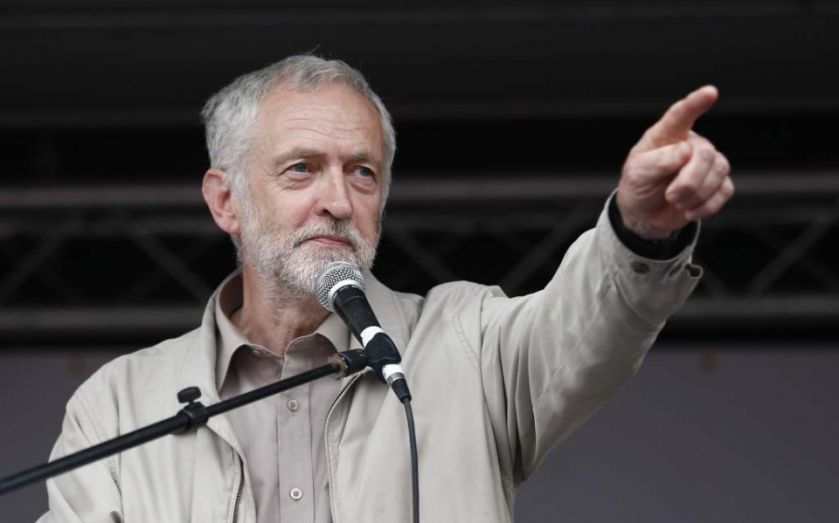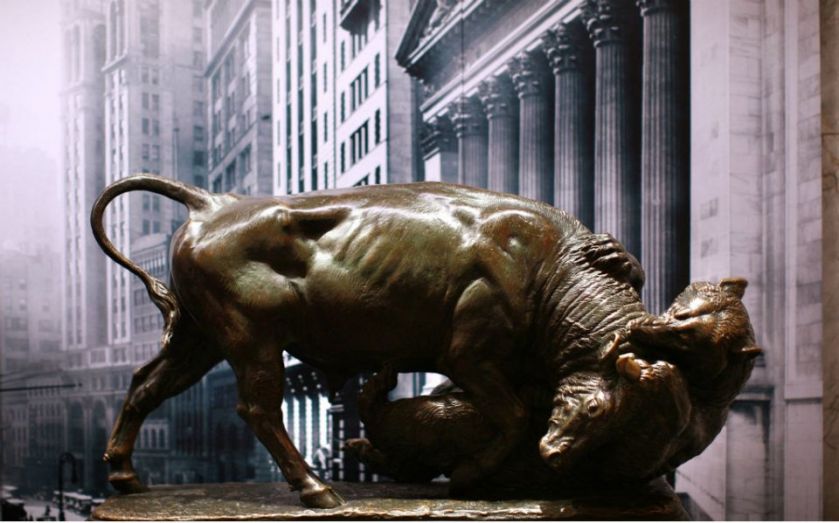Who will take on Donald Trump in next years battle for the White House?
At the time of writing, an absurdly long list of Democratic hopefuls is dominated by Joe Biden, the septuagenarian former vice president who currently enjoys a huge lead in the opinion polls.
Read more: President Trump endorses Boris Johnson as next PM
Despite his early pace, however, it would be naive to assume that Bidens relatively centrist following in the Democratic party will get their way.
Indeed, it may be that Biden is not even the most popular 76-year-old Joe among Democrat-leaning activists.
Professor Joseph Stiglitz, Nobel prizewinner and doyen of the American left, has published his latest book to coincide with the fight, not just for the White House, but for the soul of the Democratic party.
Flock to the centre ground, so wildly abandoned by arguably the most divisive president in US history, or fight fire with fire in a push to the radical left?
Stiglitz nailed his colours to the mast many years ago, and the sentiment behind his latest publication will surprise no one.
The centre ground is dead
“Weve tried centrist politics for more than 25 years and centrist politics have gotten us into the mess that weve had, and that is the theme that I emphasise,” Stiglitz told City A.M. during a recent interview.
“The books implicit argument, or maybe its explicit, is that the kind of tweaking, the minor reforms – a little bit more education here, a little tax reform there – are not likely to suffice to address the maladies in which we find ourselves.”
People, Power and Profits is a manifesto for Democratic hardliners, pouncing on the popularity of Alexandria Ocasio-Cortez (known affectionately as AOC), Bernie Sanders and Elizabeth Warren to encourage the party further and further to the left.

Asked for whom his book is written, Stiglitz says: “There are two audiences. One of them is obviously the politicians who are running for office, the political activists… I wanted to give them an analysis with which they can understand why things have not worked as well, and then examples of particular solutions.”
He adds: “And then of course the broader objective is reaching the broader citizenry, many of whom are concerned or certainly should be concerned about the increase in inequality, the slowing of growth, and the political discontent to which its all given rise.”
With every opinion article, every book, and every interview, the former World Bank economist cements his position as a bastion of the left, including a generation of young men and women on both sides of the Atlantic who find themselves attracted to socialist thinking.
Could Corbynism spread to the US?
For supporters of Sanders, AOC and on these shores Jeremy Corbyn, Stiglitzs CV provides an intellectual justification for a platform of “curbing market power, reframing globalisation [and] tempering financial markets,” to borrow the authors own words.
Read more: Corbyns Labour shows the dangers of nationalisation
Asked about Corbynism itself – and the Labour partys support for sweeping nationalisations, a huge state bank and plans to radically change the Bank of Englands remit – Stiglitz admits his thinking is “broadly in line” with that of the Labour party and its firebrand chancellor John McDonnell.

But Stiglitz insists todays objectives are “very different from the socialist agenda of 45 to 50 years ago or more”.
“They use language like nationalising the railroads which is a throwback to the debates before 1980, and one of the things Ive said explicitly is that no one in America is talking about the ownership of the basic means of production,” Stiglitz says.
However, a vocal advocate of state banks (“not really a revolutionary idea”), Stiglitz is loath to criticise the proposed reshaping of central banks or even so-called “Peoples QE”, a policy previously backed by Corbyn in which the Bank of England would create money to directly fund government spending.
“Central banks have since 2008 taken on a very large but hidden fiscal role,” he says.
“Let me put it like this, central banks are often proscribed from lending to government but if you ask what is actually going on, government has borrowed large amounts of money, issued bonds, and the central bank has bought those bonds in the secondary market – that is no different than if they had lent actually to the government directly, thats a distinction without a difference, its what weve been doing.”
He continues: “When the ECB and the Federal Reserve lent money to particular corporations, they didnt call it lending, they called it buying bonds from particular corporations – thats lending.

“If theyre going to be engaged in doing that very kind of lending to particular companies maybe we ought to think about the principles under which that is conducted.”
Such opinions may not come as a huge surprise in the era of modern monetary theory (a viewpoint seemingly endorsed by AOC).
Nonetheless they are likely to alarm readers from more centrist, conservative or liberal backgrounds, as will Stiglitzs relentless broadsides against the mechanics of the financial sector and those who work within it.
Lacking momentum on the financial crisis
Many City workers, one suspects, would welcome an intellectual, thought-provoking challenge to their industry.
However, they will not find it within the pages of People, Power and Profits, a book that is ultimately no more original than its name.
The books narrative surrounding the financial crisis is tired and predictable. Stiglitz blames “unfettered markets” and “bankers unbridled pursuit of their self-interest” for the crunch and ensuing crash and presents a chapter that resembles campaign literature from the student wing of Corbynite pressure group Momentum.
“Millions lost their homes and jobs as the bankers who had brought on all of this basked in the millions in bonuses,” he writes.
Referring to emergency summits between government officials, regulators and banks at the height of the panic, Stiglitz complains: “Ordinary homeowners who were struggling were not at the [discussion] table; the big financial companies were.”
This is not, unfortunately, the only line that brings to mind the infamous scene from Team America in which Tim Robbins mulls the evils of corporations sitting in their corporation buildings being “all corporationy and making money.”
Read more: How we can learn from past mistakes to avoid another financial crash
Justifiable complaints about the bailing out of large financial companies with taxpayer money – a significant blight on the otherwise impressive record of the mixed economy – are not accompanied with any detailed analysis of the regulatory and structural flaws that led to such interventions becoming necessary.

In other words, why were bail-ins not possible? Which laws and mechanisms inflamed moral hazard and in which areas of the sector? To what extent did US housing policy exacerbate the subprime crisis and what role did the government-sponsored Fannie Mae and Freddie Mac play?
Over a decade later, bailouts remain a prospect (certainly in Europe) and regulators are still bashing their heRead More – Source
[contf]
[contfnew]

CityAM
[contfnewc]
[contfnewc]























































